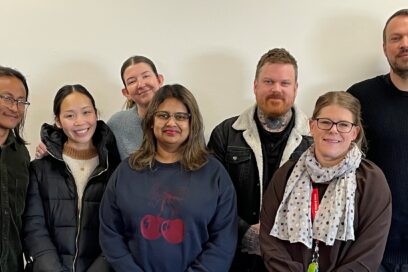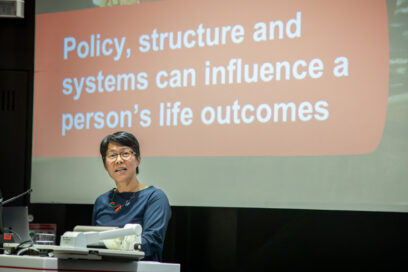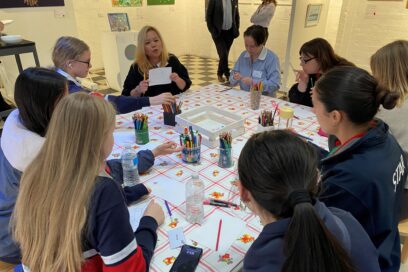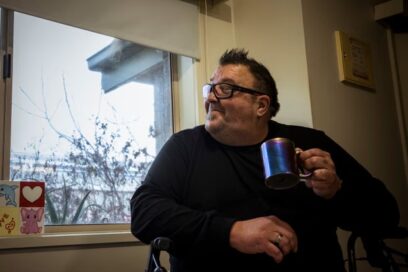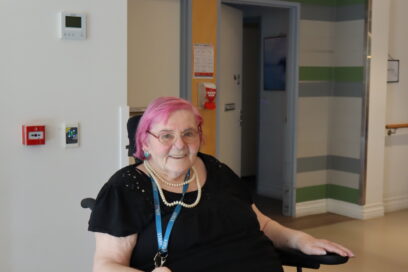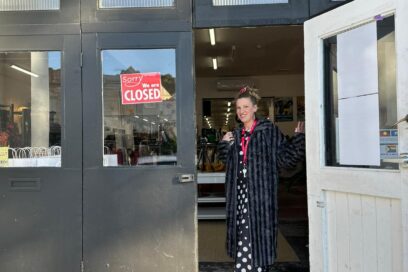John* is one of our Journey to Social Inclusion (J2SI) clients. He is living with Borderline Personality Disorder and Psychosocial behavioural complexities. As a result, he is often aggressive and difficult to engage. He is distrustful of service providers and often opposes advice he receives.
While John is in vital need of support, he has been rejected twice by the National Disability Insurance Scheme (NDIS). Why? Firstly, the NDIS required a psychological evaluation, which is expensive and difficult for people experiencing homelessness and disadvantage to attend.
Secondly, living with mental health issues or a ‘psychosocial disability’ means John finds it difficult to attend appointments so the evaluation is denied. Case workers also have to prove all treatment options have been investigated before applying to the NDIS, but without a consistent healthcare professional in John’s life it is difficult to attain his medical history.
Fortunately for John, we Sacred Heart Mission was able to provide intensive case management through J2SI to support him through two appeal processes. John eventually received an NDIS package, but is yet to start using the services and treatments identified, and requires ongoing support to do so.
The NDIS was first introduced to increase independence for people with a disability by directly providing them with funding and putting choice and control in their hands. While it’s a welcome reform for some, many vulnerable people in our community are unable to navigate the new system and are no longer receiving the care they so vitally need.
What are the challenges we faced with NDIS?
Some key barriers preventing individuals from accessing the NDIS:
- Lack of knowledge/ awareness of services available or application process
- Difficulties gathering required evidence of their disability and the necessity for very specific, costly evidence
- Lack of previous healthcare support to build evidence for the individual’s case
- Poor support and advocacy for applications, resulting in a high number of rejections
- Those with deep social anxiety and/or agoraphobia preventing people from attending required appointments
- Undiagnosed psychosocial issues or behavioural disorders acting as a barrier for engaging with the process
- Inability to engage independently with either support services or the NDIS effectively
- Complex behaviour resulting in services being unwilling to supply supporting evidence.
In addition to these barriers, individuals who successfully receive a package find it challenging to use their plans. For the 4,400 Victorians living with a psychosocial disability on the NDIS, only 1,800 have used their plans to access services and support.
What are we doing about it?
We have supported people throughout the application process, identifying those most in need and providing significant support to access the NDIS and use their plan once approved.
On average we spend 15 hours per person to achieve NDIS eligibility, with many more hours required to support people to use their package. All of this work is unfunded and not billable which means our case workers are not able to spend the time needed to help the most vulnerable access the services they so desperately need.
What can be done?
The State Government recently announced funding of $70 million towards supporting mental health organisations to increase the participation in the NDIS for those with psychosocial disabilities.
While this is a welcome step forward, the government needs to:
- Introduce assertive engagement roles to actively seek out those most in need in the community and raise awareness of the NDIS and provide direct support, service coordination and system advocacy.
- Fund case worker support roles for people both to access an NDIS plan and to seek out and receive the treatments identified for them in the plan.
These changes will make the NDIS more efficient, accessible and equitable for people with complex needs. Without this support, many of our most vulnerable and complex clients will fall through the cracks and miss out on the supports and services they so vitally need.
*We have changed the name of our client to protect his privacy.





